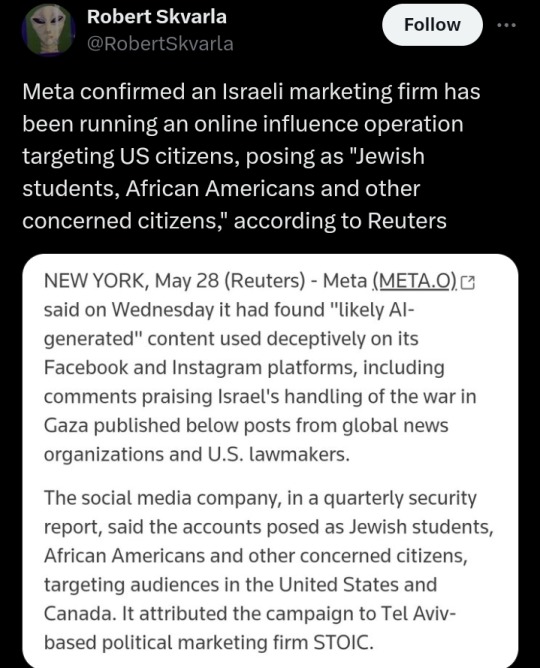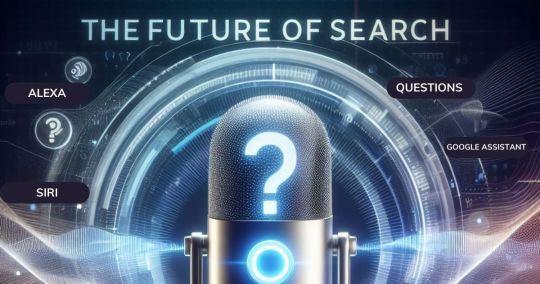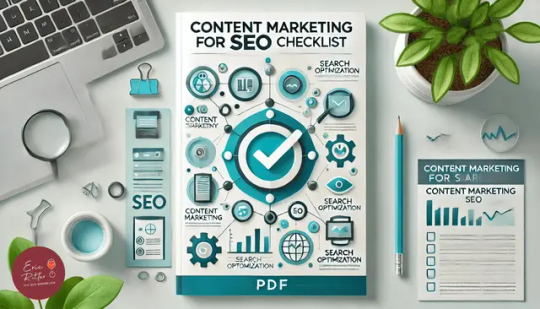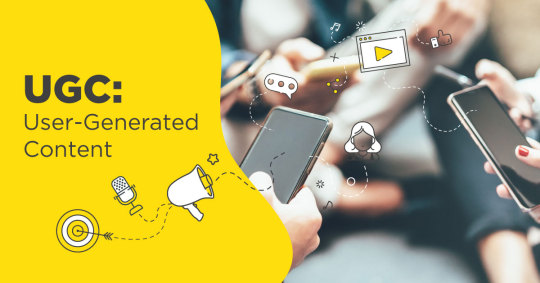#AI Influencer Marketing Platform
Explore tagged Tumblr posts
Text
How to Reach Out to Brands as an Influencer: A Step-by-Step Guide
In today’s world of social media, influencers play a critical role in marketing strategies. Collaborations between brands and influencers create opportunities for authentic connections with audiences, leading to more impactful campaigns. However, reaching out to brands can feel overwhelming, especially if you’re new to the industry.
The Role of Influencer Marketing Campaigns in Modern Business
Influencer marketing campaigns have revolutionized how businesses engage with their audience. Unlike traditional advertisements, these campaigns rely on real people to promote products in relatable and creative ways. Whether you're promoting a skincare line or a tech gadget, brands increasingly seek influencers who can connect with their audience on a personal level. This mutual collaboration benefits both parties, provided it’s handled strategically.
AI-powered tools have transformed influencer marketing by simplifying the process of finding suitable collaborations. Using an AI influencer marketing platform, influencers and brands can match based on metrics like engagement rates, audience demographics, and content style. These platforms save time and increase the likelihood of successful partnerships.
Steps to Reach Out to Brands
1. Know Your Niche
Before you start reaching out, identify your strengths and the niche you cater to. Brands are looking for influencers who align with their values and audience. For example:
- If you focus on sustainable living, target eco-friendly brands.
- A tech enthusiast? Reach out to brands in consumer electronics.
Having clarity on your niche helps you create content that resonates with your followers while attracting brands whose goals align with yours.
2. Research the Brand
Thorough research is the foundation of any good collaboration. Study the brand’s products, marketing campaigns, and tone of voice. Look at their social media profiles to understand their target audience and current partnerships. This research will help you tailor your outreach in a way that feels genuine.
3. Interact with the Brand
Engaging with a brand’s content can pave the way for stronger connections. Follow their social media pages, comment thoughtfully on posts, and share their content with your audience. This builds familiarity and shows the brand that you genuinely care about their work.
4. Craft a Clear Outreach Message
When reaching out to brands, avoid generic messages. Instead, make your pitch personal and to the point. Here’s a basic structure for your email or message:
- Subject line: Be concise, e.g., “Excited to Collaborate with [Brand Name]!”
- Introduction: Briefly introduce yourself and highlight what makes you unique.
- Highlight Alignment: Mention specific reasons why you admire the brand and why a partnership makes sense.
- Offer Value: Focus on what you can bring to the table—whether it’s creative content, access to a niche audience, or high engagement rates.
- Call to Action: Politely ask for the next steps, like setting up a call or learning more about their influencer programs.
5. Include a Media Kit
A media kit is your influencer resume. It provides brands with key information, such as:
- Your social media statistics (followers, reach, engagement rate)
- Audience demographics (age, location, interests)
- Examples of past successful collaborations or campaigns
- Professional photos and branding details
Make your media kit visually appealing yet easy to read. Tools like Canva offer free templates to help you create one.
6. Follow Up Politely
Sometimes, you won’t hear back from a brand immediately. Don’t be discouraged—brands receive numerous pitches daily. Send a polite follow-up email after 5–7 days to remind them of your proposal. Here’s an example:
- Subject: “Following Up on Collaboration with [Brand Name]”
- Message: “Hi [Name], I hope this email finds you well. I wanted to follow up on my previous message regarding a potential collaboration. I’m excited about the possibility of working together and would love to discuss further details. Thank you for your time!”
How AI Influencer Marketing Platforms Help Influencers and Brands Collaborate
AI platforms simplify the influencer-brand connection by automating many steps. For influencers, these platforms:
1. Suggest brands based on your audience metrics and past campaigns.
2. Help track outreach and follow-ups in an organized manner.
3. Provide insights into which brands are actively looking for partnerships.
Brands, on the other hand, can use these platforms to identify influencers whose audiences match their target market. This minimizes guesswork and maximizes the chances of creating meaningful campaigns.
Dos and Don’ts When Reaching Out to Brands
Dos
- Be professional: Keep your communication polished and respectful.
- Stay authentic: Focus on collaborations that align with your values and audience.
- Showcase creativity: Share examples of how you’ve partnered with similar brands.
Don’ts
- Avoid spamming: Sending multiple messages to the same brand can appear desperate.
- Don’t overpromise: Be honest about what you can deliver to avoid disappointing your partner.
- Stay away from copy-pasting: Brands can easily identify generic messages.
Why Building Long-Term Relationships Matters
Short-term collaborations may offer quick benefits, but long-term partnerships provide greater value. As brands repeatedly work with you, they gain trust in your ability to represent their message, and you can deepen your connection with their audience. Additionally, such collaborations often lead to better financial agreements and creative freedom.
Conclusion
Reaching out to brands as an influencer is both an art and a science. By knowing your audience, researching brands, and crafting personalized pitches, you can position yourself as an ideal partner for meaningful collaborations. With the help of tools like AI influencer marketing platforms, the process becomes even more efficient.
Brands value influencers who bring authenticity and creativity to their campaigns. Follow the steps outlined above, and you’ll be well on your way to creating impactful influencer marketing campaigns that leave a lasting impression.
#influencer marketing#creators#instagram influencer#AI Influencer Marketing Platform#Influencer marketing campaigns#Brand Collaborations
0 notes
Text
#social media platforms#social media#social networks#ai generated#artificial intelligence#ai artwork#influencer marketing#social media marketing#marketing strategy#ai technology
1 note
·
View note
Text

Meta identifies networks pushing deceptive content likely generated by AI
Meta (META.O) said on Wednesday it had found "likely AI-generated" content used deceptively on its Facebook and Instagram platforms, including comments praising Israel's handling of the war in Gaza published below posts from global news organizations and U.S. lawmakers. The social media company, in a quarterly security report, said the accounts posed as Jewish students, African Americans and other concerned citizens, targeting audiences in the United States and Canada. It attributed the campaign to Tel Aviv-based political marketing firm STOIC. While Meta has found basic profile photos generated by artificial intelligence in influence operations since 2019, the report is the first to disclose the use of text-based generative AI technology since it emerged in late 2022. Researchers have fretted that generative AI, which can quickly and cheaply produce human-like text, imagery and audio, could lead to more effective disinformation campaigns and sway elections. In a press call, Meta security executives said they removed the Israeli campaign early and did not think novel AI technologies had impeded their ability to disrupt influence networks, which are coordinated attempts to push messages.
#yemen#jerusalem#tel aviv#current events#palestine#free palestine#gaza#free gaza#news on gaza#palestine news#news update#war news#war on gaza#hasbara#israeli propaganda#ai#artificial intelligence#misinformation
460 notes
·
View notes
Text
Kinda wild to be living in this era of increasingly normalized cosmetic surgery and manipulated imagery clashing with like a maybe simultaneously increasing level of fat acceptance etc.
Dudes spend all day looking at jpegs of twenty two year old girls who have spent a bajillion dollars and gotten BBLs and implants and a dozen other surgeries and a full face of makeup and who then still had to be photoshoped to achieve the type of true marketability that comes easily to AI generated anime waifus. And those dudes won't even jack to those jpeg in a "Yes! Reject the fetishization and false dichotomies of naturalness! Embrace transhuminist bimbofication, babe!" type of way bc they're too head empty to even consider what goes into looking like that. I promise you that they don't know or care who Nina Arsenault is. Those dudes are jackin in a "This is what women and their bodies are supposed to look like! This is womanhood in its natural state! Tradwife material! Uncorrupted by the performative wokeness of a wide chin!" type of way.
And as a fat aging tranny porn slut (who doesn't have a bajillion dollars and is scared of getting cut open and is bad at makeup and doesn't even wanna be high femme) I obviously find it distressing. I feel like I'm expected to look like that. An unachievable goal that I'm only inevitability drifting further from.
I also feel tho like there's never been a better time to swoon over some frumpy babes. Like Instagram and snapchat etc may have put everyone's body dysmorphia into overdrive (totally nuked the mental health of their entire user bases) (made absolute normies think they have to LARP as celebrities which requires looking like celebrities), but social media (and I wanna explicitly include OnlyFans and other platforms that have democratized pornography) has also provided avenues for the types or body diversity that you wouldn't have found in a 2000s era magazine announcing that Brittany Spears is a fat pig or even in an equally profit motive driven Dove commercial.
Which you could (maybe correctly) interpret as all being part of our widening beauty norms. That it's totally internally consistent for society to be more accepting of women who have gotten liposuction and women who have gained weight. It's body positivity and bodily autonomy all the way down. Totally liberatory! But it feels less like a widening and more like a fracturing. In line with the fall of media monoculture and a growing political divide between young men and women. It's what you get when people are increasingly online and siloued off. The people following immaculate celebs and influencers on insta aren't the same people checking out your favorite dyke's 50th hastily taken underarm hair pic.
181 notes
·
View notes
Text
Earlier this week, journalists at WIRED and The Washington Post reported that a “Russian-aligned propaganda network notorious for creating deepfake whistleblower videos” appears to be behind a coordinated effort to promote false sexual misconduct allegations against vice presidential candidate Tim Walz.
At WIRED, David Gilbert wrote that researchers have linked a group they’re calling “Storm-1516” to the campaign against Walz. “Storm-1516 has a long history of posting fake whistleblower videos, and often deepfake videos, to push Kremlin talking points to the West,” Gilbert explained. A few days earlier, NBC News also reported on Storm-1516, citing its work as demonstrative of Russian propaganda’s growing utilization of artificial intelligence and more sophisticated bot networks.
Two days after the WIRED report, Washington Post journalist and Russia expert Catherine Belton reported on another bad actor implicated in spreading the allegations against Walz: John Mark Dougan, a former Florida cop with a long and winding record that includes internal affairs investigations, early discharge from the Marines, and a penchant for posting confidential data about thousands of police officers, federal agents, and judges on his blog, which led to 21 state charges of extortion and wiretapping. To escape that indictment, Dougan fled to Moscow, where he soon put his conspiratorial blogging skills to work, effectively enlisting in the Russian intelligence community’s “Internet war” against America.
Records show and disinformation researchers argue that Dougan is responsible for content on dozens of fake news sites with deliberately misleading names like DC Weekly, Chicago Chronicle, and Atlanta Observer. Lately, he’s reportedly started using a GRU-facilitated server and AI generator to create phony videos like the deepfake video showing one of Walz’s former students accusing him of sexual abuse.
With a little more than a week until the U.S. presidential election, Meduza spoke to Renée DiResta — the author of Invisible Rulers: The People Who Turn Lies Into Reality and an associate research professor at Georgetown University’s McCourt School of Public Policy — about Russian propaganda, how it’s evolved over the years, and how American social networks are responding (and not responding) ahead of the November 2024 vote.
Timestamps for this episode:
(5:00) The Role of Social Networks in Identifying Fake Accounts
(9:35) Government and Platform Collaboration on Inauthentic Behavior
(16:46) A Case Study: Maxim Shugaley and Russian Influence in Libya
(21:45) Twitter’s Public Data Dilemma
(24:25) Bespoke Realities and Content Moderation
(25:57) The Tenet Media Case
(27:28) The Role of Influencers in Propaganda
(35:26) Marketing and Propaganda: A Historical Perspective
(38:27) The Democratization of Propaganda
(39:36) Name Your Poison: Tyranny or Chaos
69 notes
·
View notes
Text
Pluto in Aquarius: Brace for a Business Revolution (and How to Ride the Wave)
The Aquarian Revolution
Get ready, entrepreneurs and financiers, because a seismic shift is coming. Pluto, the planet of transformation and upheaval, has just entered the progressive sign of Aquarius, marking the beginning of a 20-year period that will reshape the very fabric of business and finance. Buckle up, for this is not just a ripple – it's a tsunami of change. Imagine a future where collaboration trumps competition, sustainability dictates success, and technology liberates rather than isolates. Aquarius, the sign of innovation and humanitarianism, envisions just that. Expect to see:
Rise of social impact businesses
Profits won't be the sole motive anymore. Companies driven by ethical practices, environmental consciousness, and social good will gain traction. Aquarius is intrinsically linked to collective well-being and social justice. Under its influence, individuals will value purpose-driven ventures that address crucial societal issues. Pluto urges us to connect with our deeper selves and find meaning beyond material gains. This motivates individuals to pursue ventures that resonate with their personal values and make a difference in the world.
Examples of Social Impact Businesses
Sustainable energy companies: Focused on creating renewable energy solutions while empowering local communities.
Fair-trade businesses: Ensuring ethical practices and fair wages for producers, often in developing countries.
Social impact ventures: Addressing issues like poverty, education, and healthcare through innovative, community-driven approaches.
B corporations: Certified businesses that meet rigorous social and environmental standards, balancing profit with purpose.
Navigating the Pluto in Aquarius Landscape
Align your business with social impact: Analyze your core values and find ways to integrate them into your business model.
Invest in sustainable practices: Prioritize environmental and social responsibility throughout your operations.
Empower your employees: Foster a collaborative environment where everyone feels valued and contributes to the social impact mission.
Build strong community partnerships: Collaborate with organizations and communities that share your goals for positive change.
Embrace innovation and technology: Utilize technology to scale your impact and reach a wider audience.
Pluto in Aquarius presents a thrilling opportunity to redefine the purpose of business, moving beyond shareholder value and towards societal well-being. By aligning with the Aquarian spirit of innovation and collective action, social impact businesses can thrive in this transformative era, leaving a lasting legacy of positive change in the world.
Tech-driven disruption
AI, automation, and blockchain will revolutionize industries, from finance to healthcare. Be ready to adapt or risk getting left behind. Expect a focus on developing Artificial Intelligence with ethical considerations and a humanitarian heart, tackling issues like healthcare, climate change, and poverty alleviation. Immersive technologies will blur the lines between the physical and digital realms, transforming education, communication, and entertainment. Automation will reshape the job market, but also create opportunities for new, human-centered roles focused on creativity, innovation, and social impact.
Examples of Tech-Driven Disruption:
Decentralized social media platforms: User-owned networks fueled by blockchain technology, prioritizing privacy and community over corporate profits.
AI-powered healthcare solutions: Personalized medicine, virtual assistants for diagnostics, and AI-driven drug discovery.
VR/AR for education and training: Immersive learning experiences that transport students to different corners of the world or historical periods.
Automation with a human touch: Collaborative robots assisting in tasks while freeing up human potential for creative and leadership roles.
Navigating the Technological Tsunami:
Stay informed and adaptable: Embrace lifelong learning and upskilling to stay relevant in the evolving tech landscape.
Support ethical and sustainable tech: Choose tech products and services aligned with your values and prioritize privacy and social responsibility.
Focus on your human advantage: Cultivate creativity, critical thinking, and emotional intelligence to thrive in a world increasingly reliant on technology.
Advocate for responsible AI development: Join the conversation about ethical AI guidelines and ensure technology serves humanity's best interests.
Connect with your community: Collaborate with others to harness technology for positive change and address the potential challenges that come with rapid technological advancements.
Pluto in Aquarius represents a critical juncture in our relationship with technology. By embracing its disruptive potential and focusing on ethical development and collective benefit, we can unlock a future where technology empowers humanity and creates a more equitable and sustainable world. Remember, the choice is ours – will we be swept away by the technological tsunami or ride its wave towards a brighter future?
Decentralization and democratization
Power structures will shift, with employees demanding more autonomy and consumers seeking ownership through blockchain-based solutions. Traditional institutions, corporations, and even governments will face challenges as power shifts towards distributed networks and grassroots movements. Individuals will demand active involvement in decision-making processes, leading to increased transparency and accountability in all spheres. Property and resources will be seen as shared assets, managed sustainably and equitably within communities. This transition won't be without its bumps. We'll need to adapt existing legal frameworks, address digital divides, and foster collaboration to ensure everyone benefits from decentralization.
Examples of Decentralization and Democratization
Decentralized autonomous organizations (DAOs): Self-governing online communities managing shared resources and projects through blockchain technology.
Community-owned renewable energy initiatives: Local cooperatives generating and distributing clean energy, empowering communities and reducing reliance on centralized grids.
Participatory budgeting platforms: Citizens directly allocate local government funds, ensuring public resources are used in line with community needs.
Decentralized finance (DeFi): Peer-to-peer lending and borrowing platforms, bypassing traditional banks and offering greater financial autonomy for individuals.
Harnessing the Power of the Tide:
Embrace collaborative models: Participate in co-ops, community projects, and initiatives that empower collective ownership and decision-making.
Support ethical technology: Advocate for blockchain platforms and applications that prioritize user privacy, security, and equitable access.
Develop your tech skills: Learn about blockchain, cryptocurrencies, and other decentralized technologies to navigate the future landscape.
Engage in your community: Participate in local decision-making processes, champion sustainable solutions, and build solidarity with others.
Stay informed and adaptable: Embrace lifelong learning and critical thinking to navigate the evolving social and economic landscape.
Pluto in Aquarius presents a unique opportunity to reimagine power structures, ownership models, and how we interact with each other. By embracing decentralization and democratization, we can create a future where individuals and communities thrive, fostering a more equitable and sustainable world for all. Remember, the power lies within our collective hands – let's use it wisely to shape a brighter future built on shared ownership, collaboration, and empowered communities.
Focus on collective prosperity
Universal basic income, resource sharing, and collaborative economic models may gain momentum. Aquarius prioritizes the good of the collective, advocating for equitable distribution of resources and opportunities. Expect a rise in social safety nets, universal basic income initiatives, and policies aimed at closing the wealth gap. Environmental health is intrinsically linked to collective prosperity. We'll see a focus on sustainable practices, green economies, and resource sharing to ensure a thriving planet for generations to come. Communities will come together to address social challenges like poverty, homelessness, and healthcare disparities, recognizing that individual success is interwoven with collective well-being. Collaborative consumption, resource sharing, and community-owned assets will gain traction, challenging traditional notions of ownership and fostering a sense of shared abundance.
Examples of Collective Prosperity in Action
Community-owned renewable energy projects: Sharing the benefits of clean energy production within communities, democratizing access and fostering environmental sustainability.
Cooperatives and worker-owned businesses: Sharing profits and decision-making within companies, leading to greater employee satisfaction and productivity.
Universal basic income initiatives: Providing individuals with a basic safety net, enabling them to pursue their passions and contribute to society in meaningful ways.
Resource sharing platforms: Platforms like carsharing or tool libraries minimizing individual ownership and maximizing resource utilization, fostering a sense of interconnectedness.
Navigating the Shift
Support social impact businesses: Choose businesses that prioritize ethical practices, environmental sustainability, and positive social impact.
Contribute to your community: Volunteer your time, skills, and resources to address local challenges and empower others.
Embrace collaboration: Seek opportunities to work together with others to create solutions for shared problems.
Redefine your own path to prosperity: Focus on activities that bring you personal fulfillment and contribute to the collective good.
Advocate for systemic change: Support policies and initiatives that promote social justice, environmental protection, and equitable distribution of resources.
Pluto in Aquarius offers a unique opportunity to reshape our definition of prosperity and build a future where everyone thrives. By embracing collective well-being, collaboration, and sustainable practices, we can create a world where abundance flows freely, enriching not just individuals, but the entire fabric of society. Remember, true prosperity lies not in what we hoard, but in what we share, and by working together, we can cultivate a future where everyone has the opportunity to flourish.
#pluto in aquarius#pluto enters aquarius#astrology updates#astrology community#astrology facts#astro notes#astrology#astro girlies#astro posts#astrology observations#astropost#astronomy#astro observations#astro community#business astrology#business horoscopes
118 notes
·
View notes
Text
A comedian was escorted away from former House Speaker Nancy Pelosi after he posed as a Democrat and heckled her over her stock trading, calling her “the greatest options trader of all time” and asking for tips on which shares he should buy.
Alex Strenger, a conservative comedian, approached Pelosi as she was signing copies of her new book “The Art of Power” at the Texas Tribune Festival in Austin on Saturday — a clip of which was posted on the X social media platform on Sunday.
Strenger, who is seen wearing a COVID mask and a Bernie Sanders baseball cap, approached the table where Pelosi was sitting and identified himself as “Noah,” according to the news site Mediaite.
“I’m a UTA candidate. I was listening. I wasn’t able to get a book, sold out, but I want to say how much I appreciate your, like, fierce, staunch defending of democracy,” Strenger told Pelosi, adding that it “really means so, so much, you know?”
Strenger then told Pelosi about how he was “really scared about…Donald Trump winning the election.”
“And honestly, with all the disinformation on X, like, you know, I honestly, the only chance, like, that we have is for Donald Trump to spend the rest of his life in prison,” Strenger said.
He added that imprisoning Trump was “the only hope for democracy,” adding: “We just have to win the election.”
Pelosi agreed, replying: “We do.”
Strenger then asked Pelosi: “What stocks should I buy?”
“Nancy, you’re the greatest options trader of all time,” the comedian added.
“I just want to know what stocks I should buy. What I just want to know, like, what’s your biggest concern?”
As security guards stepped in to prepare to escort Strenger away from the former House speaker, he said: “The police are an instrumental institution of white supremacy and racism. I don’t understand why they are even here at all. They should be defunded.”
Strenger then said that Pelosi “makes six figures a year in Congress and has a hundred million dollar net worth.”
“Don’t y’all want to know what stocks she should buy? Come on. I just want to know,” he said as security began escorting him away.
“I just want to know what stocks to buy. I want to close the wealth gap. What’s the problem? I just want to close the wealth gap.”
Pelosi, the Democratic congresswoman who represents San Francisco, is married to Paul Pelosi, the founder of a real estate and venture capitalist firm.
Paul Pelosi’s stock trading activity has raised eyebrows given the fact that his wife’s position as one of the most powerful legislators in the country gives her access to information that may influence market decision.
In June 2021, Paul Pelosi exercised call options in Microsoft just before the company was awarded a lucrative defense contract from the US government.
The next year, Paul Pelosi purchased shares of AI chipmaker Nvidia just as Congress was set to vote on the CHIPS Act, which provided significant government subsidies to the semiconductor industry.
The Pelosis’ stock portfolio includes shares in blue-chip tech firms such as Apple, Amazon, Meta, Tesla and Alphabet.
Last year alone, Pelosi’s stock options gained more than 65%, according to an analysis.
Nancy Pelosi initially opposed proposals that lawmakers and their spouses be banned from trading stocks — insisting that her husband makes stock trades independently and that she has no involvement.
The Post has sought comment from Nancy and Paul Pelosi.
8 notes
·
View notes
Text
#SakuraSpiderArachnid #MarvelGames #Playstation7 #DearDearestBrands







Here's an overview for Sakura Spider: Arachnid, a PlayStation 7 game concept in collaboration with Marvel Comics and DearDearestBrands:
Game Concept: Sakura Spider: Arachnid
Platform: PlayStation 7
Genre: Action-Adventure, Open-World, RPG
Graphics Style: Manga-inspired, cel-shaded visuals with anime-like fluidity and dynamic aesthetic environments.
Story and Setting
Origin Story: The protagonist, Sakura Hoshino, is a kind-hearted artist living in Tokyo, struggling to balance her creative dreams with societal expectations. While sketching under a blooming Sakura tree, a spider—mutated by gamma radiation—bites her. This spider was created by an experimental cross between Oscorp and a mysterious gamma reactor stationed near the ancient cherry blossom grove.
She discovers new powers that reflect her artistic soul and emotional depth. Empowered with heightened empathy and a "sense of aesthetics," Sakura fights to protect her city from threats that challenge both its physical and cultural identity.
Setting: The game takes place in Neo-Tokyo, a sprawling city divided into diverse zones, including:
Shinjuku Skyline: Neon-filled high-rises with bustling nightlife.
Harajuku Haven: Fashion streets where creativity thrives.
Ancient Cherry Grove: Mystical Sakura trees, where her powers were born.
Tokyo Bay Industrial: A hub of Oscorp gamma experiments and toxic waste.
Gamma Underbelly: Secret Oscorp labs housing mutated creatures.
Cultural Market Streets: Places to gather inspiration and interact with NPCs.
Gameplay
Core Gameplay Mechanics:
Web Weaving: Manipulate webs to craft weapons, art-based traps, and shield barriers.
Aesthetic Aura: Use the protagonist’s power of "Aesthetic Empathy" to influence NPCs, calm enemies, and rebuild damaged zones.
Emotion Threads: Unlock emotional-based superpowers like "Gamma Kindness" (healing) and "Empathy Strike" (disabling enemies).
Sense of Design: Use her artistic abilities to restore monuments, graffiti walls, or design costumes with bonuses.
Combat System:
Manga-styled action sequences with combos tied to her "Spider Dance," a fusion of web attacks and Sakura petal-themed strikes.
Dual attack modes:
Stealth Mode: Silent takedowns using web camouflages.
Empathy Combat: Disarm and pacify enemies with emotional insight.
Exploration and City-Building: Restore zones by infusing aesthetics into Neo-Tokyo, converting drab areas into thriving artistic hubs. Gain resources to improve the city’s visual beauty and morale.
Supporting Cast
Takashi Hoshino (Brother): A robotics prodigy who creates her gadgets.
Rika (Best Friend): A spirited fashion designer who helps craft outfits for stealth and combat.
Dr. Masako Arai: A former Oscorp scientist turned mentor who knows the truth about the experiments.
Gamma Mutant Villains:
The Sakura Swarm: A gang of mutant spiders spreading chaos.
Crimson Bloom: A rival powered by corrupted Sakura energy.
The Oscorp Shadow: An advanced AI controlling the gamma experiments.
Items and Utilities
Sakura Thread Enhancer: Boosts web strength.
Petal Shield: Blocks attacks while dazzling enemies.
Web Artistry Kit: Allows you to paint zones, creating buffs and influencing allies.
Kindness Vial: A rare item that unlocks massive area healing.
Art Style and Aesthetic
Cel-Shaded Graphics: The game embraces soft, manga tones with vivid cherry blossom effects.
Cultural Fusion: Neo-Tokyo blends traditional Japanese architecture with futuristic neon aesthetics.
Dynamic Seasons: The city changes based on Sakura's emotional state (e.g., blossoms flourish when morale is high).
Potential DLC and Expansions
The Gamma Grove: Explore an ancient Sakura forest that reveals the origin of the gamma mutation.
Spider-Verse Crossover: Features other Spider-heroes from the Marvel Universe.
Custom Costume Creator: Design Spider outfits with aesthetic perks.
Let me know how you'd like to expand any specific part of this concept!
https://chatgpt.com/share/6753d965-c084-8005-943f-9bf588ab1a16






Let's expand on gameplay ideas for Sakura Spider Arachnid! Here’s a detailed breakdown: Core Gameplay Mechanics 1. Swinging System: Fluid, physics-based web-swinging similar to Spider-Man PS5, but with a unique Sakura twist. Players can unlock aerial tricks and advanced web-swinging techniques that leave trails of glowing Sakura petals. Special “Gamma Burst Swing” mechanic allows for high-speed traversal across long distances. 2. Empathy Powers: Instead of relying on brute force, Sakura can resolve conflicts using her Empathy Webs, which calm or convert hostile enemies. Players must strategically decide when to use empathy or combat, altering NPC behavior and story outcomes. 3. Sense of Aesthetics: Sakura can identify weak points in environments or enemies using her aesthetic sense. This ability highlights climbable surfaces, destructible objects, or secret pathways. 4. Combat: Fast-paced, martial-arts-inspired combat blending acrobatics and web abilities. Sakura's “Petal Fury Mode” unleashes rapid attacks surrounded by an aura of glitter and petals. Gamma-powered moves, like the “Blossom Smash”, deliver heavy-hitting crowd control effects. World Design 1. Zones: Shibuya District: Neon-lit streets, bustling crowds, and vertical challenges with towering billboards. Sakura Temple Grounds: A tranquil area with hidden challenges and spiritual puzzles tied to Sakura’s origin. Gamma Research Facility: Heavily guarded industrial zone, featuring stealth-based missions and tech puzzles. Skyline Heights: High-rise corporate buildings for intense web-swinging sequences and rooftop battles. 2. Interactive Elements: Players can interact with Tokyo’s citizens, from helping lost children to stopping random crimes. Sakura can create web-art murals using leftover Sakura petals to inspire kindness in the city. Supporting Cast 1. Yuto Tanaka (Mentor): A scientist who explains the origin of the gamma spider and guides Sakura on using her powers. 2. Hana Kuroki (Best Friend): Provides comic relief and helps design Sakura’s webbing gear. 3. Villains: The Steel Ronin: A cyber-samurai enhanced by gamma technology. Shade Widow: A rival spider-powered character who represents Sakura’s dark potential. Items and Utilities 1. Petal Webbing: Unique webs that can heal allies or immobilize enemies. 2. Aesthetic Vision Goggles: Enhances Sakura’s ability to spot hidden objects or see through illusions. 3. Gamma Infuser: Temporarily boosts Sakura’s abilities during intense battles. Side Quests and Activities 1. Sakura Bloom Restoration: Revive wilted Sakura trees around the city to boost morale. 2. Fashion Challenges: Use Sakura’s sense of aesthetics to help NPCs with design challenges. 3. Street Performances: Sakura can perform aerial stunts for Tokyo’s citizens to earn reputation points. Visual Style and Aesthetic 1. Vibrant, anime-inspired graphics with photorealistic details. 2. Dynamic lighting changes based on Sakura’s emotions, such as a glowing aura during high-stress moments. Let me know if you'd like to focus more on any specific part, such as storyline, mechanics, or visual design!







Here’s a detailed Character Profile for Sakura Hoshino, the heroine of your game:
Character Profile: Sakura Hoshino
Full Name:
Sakura Hoshino
Alias:
Sakura Spider Arachnid
Age:
23 years old
Origin:
Tokyo, Japan
Occupation:
Web-slinger, Protector of Tokyo
Fashion Designer (Side Hobby)
College Graduate (Specializing in Environmental Design and Aesthetics)
Appearance
Height: 5'8"
Build: Athletic, with a lean and toned physique
Hair: Long, flowing pastel pink hair with subtle highlights of soft yellow, often tied in a loose ponytail when active.
Eyes: Deep, vibrant purple with a glimmer of white, reflecting her inner strength and empathy.
Skin: Fair, with a soft glow, showing the effects of gamma radiation exposure.
Suit:
Design: A sleek, high-tech spider suit infused with Sakura blossom patterns. The suit’s base color is pastel pink, accented with a soft yellow hue and glowing threads of white to represent Sakura petals.
Webbing: High-tech, metallic webs that glow with a Sakura petal motif.
Additional Features: The suit features a glowing "Sakura Core" in her chest, symbolizing her connection to the mystical Sakura tree that gave her powers.
Backstory
Sakura Hoshino was an ordinary university student studying environmental design, passionate about nature and art. During a visit to a traditional Japanese shrine, she stumbled upon a sacred Sakura tree rumored to be connected to ancient gamma radiation experiments. While sketching its beauty, she was bitten by a rare spider that had been exposed to this radiation. The bite merged with her body, giving her the ability to manipulate webs with both physical and emotional force. Her deep connection to nature and aesthetic design also enhanced her powers, giving her a unique ability to sense beauty, calm aggression, and heal emotional wounds.
After the incident, Sakura was thrust into a dual life: one as a protector of Tokyo, and the other as a budding fashion designer seeking to express herself and promote kindness. She uses her powers to combat crime and solve conflicts without violence, utilizing empathy and aesthetics as her main weapons. Sakura now fights to protect her city while balancing her personal dreams and responsibilities.
Personality
Compassionate: Sakura’s defining trait is her deep empathy. She can sense the emotions of others and, when necessary, uses her powers to help heal emotional wounds.
Optimistic: Despite the challenges she faces, Sakura believes that beauty and kindness can bring change. She strives to bring peace in a world filled with chaos.
Creative: As an artist at heart, Sakura views the world through an aesthetic lens. She finds beauty even in the darkest of places and uses her creativity to solve problems.
Courageous: Sakura faces dangers head-on, often with a sense of grace. Her bravery isn’t defined by a desire for glory, but by her commitment to protect those she loves.
Determined: Sakura has a strong sense of justice and never backs down from doing what’s right, even if it means making personal sacrifices.
Abilities and Powers
Web-Slinging: Sakura can create webs of varying sizes and strengths, using them to swing between buildings, immobilize enemies, or create structures. Her webs are unique in that they also carry emotional energy, calming or subduing opponents.
Empathy Webbing: Her webs can carry a calming aura, making her opponents feel peace or empathy. This ability helps resolve conflicts without violence, but can also be used strategically to weaken enemies.
Aesthetic Vision: Sakura has an enhanced sense of aesthetics, allowing her to perceive hidden details in her environment, like weak structural points or hidden pathways. It also helps her find beauty in unexpected places.
Gamma Boost: Occasionally, Sakura’s connection to the gamma radiation grants her temporary boosts in power, enhancing her physical strength, agility, and the reach of her webs.
Healing Touch: Through her deep empathy, Sakura can heal minor emotional or physical wounds in herself or others. This ability also allows her to calm her allies in intense situations, restoring their morale.
Sakura Blossom Fury: A powerful, high-speed attack where Sakura releases a flurry of webs imbued with Sakura petals, overwhelming opponents with both speed and beauty.
Strengths
Diplomatic: Sakura prefers to solve problems peacefully, using her powers to mediate conflict rather than engage in violence.
Adaptable: Her aesthetic sense allows her to think on her feet and adapt to any situation creatively.
Agile and Fast: Her physical training and spider abilities make her incredibly nimble, able to navigate the city’s skyline with grace and precision.
Weaknesses
Emotional Vulnerability: While her empathy is her greatest strength, it also makes her susceptible to emotional exhaustion. Overuse of her empathy can leave her drained.
Gamma Exposure: Extended exposure to gamma radiation may occasionally cause her to lose control of her powers, leading to instability in her emotional balance.
Over-reliance on Non-Violence: Sakura’s preference for peaceful resolutions can sometimes put her in dangerous situations where more forceful methods may be needed.
Relationships
Yuto Tanaka (Mentor): A scientist who understands the origins of the gamma radiation and guides Sakura in controlling her powers. He is a father figure and the one who encouraged her to embrace her new abilities.
Hana Kuroki (Best Friend): Sakura’s best friend and confidante. Hana supports her throughout her journey, both in her heroic duties and personal life.
Villains:
The Steel Ronin: A dark counterpart to Sakura, a cyber-enhanced warrior who is bent on destroying the harmony Sakura seeks to protect.
Shade Widow: A mysterious figure whose own emotional turmoil mirrors Sakura’s, leading to a rivalry built on both their powers and inner conflicts.
Catchphrase:
"Beauty is the strength we need to protect the world."
War Of The Roses!!!
#playstation7#deardearestbrands#ps7#digitalconsole#Sakura Spider arachnid#marvelGames#DearDearestBrands
4 notes
·
View notes
Text
A face swap tool...

Exciting prospects for various creative disciplines are provided by this AI face swapping app. Innovative story-telling methods would be entered into by independent filmmakers and YouTube creators; for example, an entertaining monologue may have one actor playing numerous characters, elevating the narrative. It is also possible to participate in trending memes and challenges through this face-swapping tool online, ensuring that your content remains fresh on social media. Besides that, the Video Face Swap AI tool has great promise in marketing campaigns, allowing startups to create personalized ads with their team members or influencers. Not only does such an idea repurpose content, but it is also a great way to establish a better connection with audiences. Using Video Face Swap AI, use HD recorded footage, ensure lighting angles are proper, and include all features to be swapped. Be creative and try the tool's customization features, as they explode new creative paths in your projects.
For those who want to interact with audiences even more, Video Face Swap AI has dynamic storytelling tools for various platforms. This AI face swapping app allows access to video projects of any caliber, be it short clips, ads, or feature-length productions. From comedy sketches to educational content, creators may try something interesting and imaginative with new perspectives and scenarios to attract audiences. Its easy-to-navigate interface makes it suitable for beginners and offers advanced customizable options for professionals to elevate their content with its face selecting feature.
In the end, the Video Face Swap AI is a face swapper application that defines versatility along with ease of use. Be it an independent creator or someone in business or even someone who seeks the creation of brilliant fun content, this AI face swapping app promises utmost precision, easy usability, and creative flexibility. It has been described as a best practice along with high-resolution footage and experimenting with lighting effects for using the options in this AI face swapping tool, which can yield amazing results that are very professional.
Try Video Face Swap AI today! --> https://www.videofaceswap.ai/
#deepfake#face swap#faceswap#ai video#artificial intelligence#videofaceswap.ai#emma watson#sydney sweeney
5 notes
·
View notes
Text
AI & IT'S IMPACT
Unleashing the Power: The Impact of AI Across Industries and Future Frontiers
Artificial Intelligence (AI), once confined to the realm of science fiction, has rapidly become a transformative force across diverse industries. Its influence is reshaping the landscape of how businesses operate, innovate, and interact with their stakeholders. As we navigate the current impact of AI and peer into the future, it's evident that the capabilities of this technology are poised to reach unprecedented heights.
1. Healthcare:
In the healthcare sector, AI is a game-changer, revolutionizing diagnostics, treatment plans, and patient care. Machine learning algorithms analyze vast datasets to identify patterns, aiding in early disease detection. AI-driven robotic surgery is enhancing precision, reducing recovery times, and minimizing risks. Personalized medicine, powered by AI, tailors treatments based on an individual's genetic makeup, optimizing therapeutic outcomes.
2. Finance:
AI is reshaping the financial industry by enhancing efficiency, risk management, and customer experiences. Algorithms analyze market trends, enabling quicker and more accurate investment decisions. Chatbots and virtual assistants powered by AI streamline customer interactions, providing real-time assistance. Fraud detection algorithms work tirelessly to identify suspicious activities, bolstering security measures in online transactions.
3. Manufacturing:
In manufacturing, AI is optimizing production processes through predictive maintenance and quality control. Smart factories leverage AI to monitor equipment health, reducing downtime by predicting potential failures. Robots and autonomous systems, guided by AI, enhance precision and efficiency in tasks ranging from assembly lines to logistics. This not only increases productivity but also contributes to safer working environments.
4. Education:
AI is reshaping the educational landscape by personalizing learning experiences. Adaptive learning platforms use AI algorithms to tailor educational content to individual student needs, fostering better comprehension and engagement. AI-driven tools also assist educators in grading, administrative tasks, and provide insights into student performance, allowing for more effective teaching strategies.
5. Retail:
In the retail sector, AI is transforming customer experiences through personalized recommendations and efficient supply chain management. Recommendation engines analyze customer preferences, providing targeted product suggestions. AI-powered chatbots handle customer queries, offering real-time assistance. Inventory management is optimized through predictive analytics, reducing waste and ensuring products are readily available.
6. Future Frontiers:
A. Autonomous Vehicles: The future of transportation lies in AI-driven autonomous vehicles. From self-driving cars to automated drones, AI algorithms navigate and respond to dynamic environments, ensuring safer and more efficient transportation. This technology holds the promise of reducing accidents, alleviating traffic congestion, and redefining mobility.
B. Quantum Computing: As AI algorithms become more complex, the need for advanced computing capabilities grows. Quantucm omputing, with its ability to process vast amounts of data at unprecedented speeds, holds the potential to revolutionize AI. This synergy could unlock new possibilities in solving complex problems, ranging from drug discovery to climate modeling.
C. AI in Creativity: AI is not limited to data-driven tasks; it's also making inroads into the realm of creativity. AI-generated art, music, and content are gaining recognition. Future developments may see AI collaborating with human creators, pushing the boundaries of what is possible in fields traditionally associated with human ingenuity.
In conclusion, the impact of AI across industries is profound and multifaceted. From enhancing efficiency and precision to revolutionizing how we approach complex challenges, AI is at the forefront of innovation. The future capabilities of AI hold the promise of even greater advancements, ushering in an era where the boundaries of what is achievable continue to expand. As businesses and industries continue to embrace and adapt to these transformative technologies, the synergy between human intelligence and artificial intelligence will undoubtedly shape a future defined by unprecedented possibilities.
19 notes
·
View notes
Text
A real influence operation (psyop) about Gaza!
Another campaign that both OpenAI and Meta said they disrupted in recent months traced back to a political marketing firm in Tel Aviv called Stoic. Fake accounts posed as Jewish students, African-Americans, and concerned citizens. They posted about the war in Gaza, praised Israel’s military, and criticized college antisemitism and the U.N. relief agency for Palestinian refugees in the Gaza Strip, according to Meta. The posts were aimed at audiences in the U.S., Canada, and Israel. Meta banned Stoic from its platforms and sent the company a cease and desist letter.
Surprise. Israel has been caught running influence operations for liberals.
Russia is also running influence operations about Ukraine, but Russia is not very interested in Palestine.
8 notes
·
View notes
Text
Michael Esposito Staten Island: Innovative AI Solutions for Influencer Marketing in the Digital Age
In the ever-evolving landscape of digital marketing, influencer marketing has emerged as a powerful strategy for brands to connect with their target audience and drive engagement. With the rise of social media platforms, influencers have become key players in shaping consumer preferences and purchasing decisions. Michael Esposito Staten Island — Influence in the Digital Age exemplifies this trend, highlighting how digital influencers can significantly impact marketing strategies and outcomes. However, as the digital space becomes increasingly saturated with content, brands are turning to innovative AI solutions to enhance their influencer marketing efforts and stay ahead of the curve.

AI-Powered Influencer Discovery
One of the biggest challenges brands face in influencer marketing is finding the right influencers to collaborate with. Traditional methods of influencer discovery often involve manual research and outreach, which can be time-consuming and inefficient. However, AI-powered influencer discovery platforms leverage advanced algorithms to analyze vast amounts of data and identify influencers who are the best fit for a brand's target audience and campaign objectives. Michael Esposito Staten Island: An Influencer Marketer Extraordinaire, exemplifies how effective influencer collaboration can transform marketing strategies. By harnessing the power of AI, brands can streamline the influencer discovery process and identify high-potential collaborators with greater accuracy and efficiency.
Predictive Analytics for Campaign Optimization
Once influencers have been identified and partnerships established, brands can leverage AI-powered predictive analytics to optimize their influencer marketing campaigns. Predictive analytics algorithms analyze historical campaign data, audience demographics, and engagement metrics to forecast the performance of future campaigns. By leveraging these insights, brands can make data-driven decisions about content strategy, audience targeting, and campaign optimization, maximizing the impact of their influencer collaborations and driving measurable results.
AI-Driven Content Creation
Content creation is a critical component of influencer marketing campaigns, and AI is revolutionizing the way brands create and optimize content for maximum impact. AI-powered content creation tools can generate personalized, high-quality content at scale, helping brands maintain a consistent brand voice and aesthetic across their influencer collaborations. From automated image and video editing to natural language processing for caption generation, AI-driven content creation tools empower brands to create compelling, on-brand content that resonates with their target audience and drives engagement.
Sentiment Analysis for Brand Monitoring
Influencer marketing campaigns can have a significant impact on brand perception, and it's essential for brands to monitor and manage their online reputation effectively. AI-powered sentiment analysis tools analyze social media conversations and user-generated content to gauge public sentiment towards a brand or campaign. By tracking mentions, sentiment trends, and key themes, brands can quickly identify and address any potential issues or negative feedback, allowing them to proactively manage their brand reputation and maintain a positive online presence.
Automated Performance Reporting
Measuring the success of influencer marketing campaigns is crucial for determining ROI and informing future strategies. However, manual performance reporting can be time-consuming and prone to human error. AI-powered analytics platforms automate the process of performance reporting by aggregating data from multiple sources, analyzing key metrics, and generating comprehensive reports in real-time. By providing brands with actionable insights into campaign performance, audience engagement, and ROI, AI-driven analytics platforms enable brands to optimize their influencer marketing efforts and drive continuous improvement.
In conclusion, as influencer marketing continues to evolve in the digital age, brands must leverage innovative AI solutions to stay competitive and maximize the impact of their campaigns. From AI-powered influencer discovery and predictive analytics to automated content creation and sentiment analysis, AI is revolutionizing every aspect of influencer marketing, enabling brands to connect with their target audience more effectively and drive measurable results. By embracing these innovative AI solutions, brands can unlock the full potential of influencer marketing and achieve success in the digital era.
10 notes
·
View notes
Text
Less than two years after taking over Twitter, now X, Elon Musk has managed to lose the company access to its third largest market and reportedly more than 40 million users. And despite his bravado online, he seems to have backed himself into a corner.
Brazil’s decision to block X is the culmination of an ongoing conflict between Musk and the country’s Superior Electoral Court (TSE), a special court run by Supreme Court Justice Alexandre de Moraes that issued takedown orders on content it considers to be a threat to the integrity of its elections. Musk and X refused to comply, allowing accounts that were accused of spreading hate speech and disinformation to remain on the platform, a move that eventually triggered the ban.
Starlink was caught in the crosshairs too: The court froze the assets of Musk’s other company, saying it was part of the same “economic group” as X given its ownership, for possible use to pay off fines owed by X. When the block came into effect Monday, Starlink allowed its customers—more than 250,000 people, according to the company— to circumvent the X ban by using its satellite internet connection. After initial resistance, Starlink backed down and said it would comply. Experts who spoke to WIRED say that increasingly, it seems that Musk has overplayed his hand.
“I think he is realizing Brazilians are not going to take to the streets because X is suspended,” says Nina Santos, a researcher at the Brazilian National Institute of Science & Technology for Digital Democracy. “Brazilian institutions are not going to back off just because Musk is cursing online.”
In response to a request for comment, an X spokesperson directed WIRED to a post from the platform's Global Affairs team. “To our users in Brazil and around the world, X remains committed to protecting your freedom of speech,” the post reads in part.
Meanwhile, Musk has continued to antagonize the court. Last week, he posted a seemingly AI-generated image of Moraes behind bars (which was later deleted), with the accompanying text alleging, “One day, Alexandre, this picture of you in prison will be real,” and another comparing him to the Harry Potter villain Voldemort.
“Ever since April, he has been toying with the image of Moraes, the legitimacy of the Supreme Court, and escalated in a problematic way,” alleges Bruna Santos, a researcher and activist with the civil society coalition Coalizão Direitos na Rede in Brazil. “He was fully aware and he knew what the consequences would be.”
WIRED reported how employees scrambled to avoid a legal crisis when Musk took over Twitter in 2022, just days before Brazil’s presidential runoffs. The company was served a consent decree from the judiciary, warning that if it didn’t keep its promises to keep safeguards around the elections in place, it risked being blocked. At the time, the country’s then president, Jair Bolsonaro, and his supporters allegedly spread disinformation about the security of the country’s elections to cast doubt on the results. Musk had promised a rollback of the company’s existing content moderation policies, and promised a sort of “free speech absolutism” that, in practice, has let hate speech and mis- and disinformation flow freely on the platform.
At the time, the trust and safety staff, the people who kept violative content off of Twitter, were able to persuade Musk to keep the platform’s safeguards on during the elections. But less than a week later, most of them were fired along with almost 50 percent of the company’s staff in the first wave of layoffs.
As part of his effort to make X a free-for-all of free speech, Musk reinstated the accounts of far-right influencers like Allan dos Santos, who fled Brazil in 2020 to avoid being investigated for spreading disinformation. After Bolsonaro lost the election, some of his supporters stormed the Brazilian legislature on January 8, 2023, and since then, the TSE has been investigating the events leading up to the insurrection. Accounts like dos Santos’ were targeted by a TSE investigation launched in April and were the subject of the court’s takedown orders.
Musk has likened Moraes to a dictator, alleging that the court is forcing censorship. (Musk has, however, complied without complaint with blocking orders in places like Turkey and India, where they have been used to censor journalists and opposition.)
And while Ivar Hartmann, an associate professor of law at the Insper Institute of Education and Research in São Paulo, alleges that Moraes has stretched the power of the court to new—and possibly concerning—levels, he claims it is also important to distinguish between a democracy with different rules and a dictatorship.
In 2019, Brazil’s TSE court launched a fake news inquiry, headed up by Moraes. Since then, he has become a controversial figure. Some see him as defending the country’s democracy; others, like Hartmann, worry he may have accrued too much power.
“This is not Venezuela [where international observers widely believe President Nicolás Maduro rigged the country’s July elections],” he says. “Even if you wanted to argue that the type of court orders we've seen regarding social media platforms in Brazil in the past two or three years are shocking, which I would agree with, you don't see [Meta CEO Mark] Zuckerberg going online and openly criticizing the courts and denying compliance with court orders in Brazil.”
Nina Santos says that even if there are valid criticisms of the approach Moraes has taken, Musk should comply with the court order and argue against them in court later. “We can discuss the decisions taken by the Brazilian court, but not whether Musk should comply with the Brazilian court or not.”
Musk’s response to the court order was to then break another Brazilian law. Like many countries, Brazil requires certain international companies appoint an in-country representative that can be contacted by the government and, in some cases, held responsible for a company’s failures to comply with the law. India, Vietnam, Turkey, and Russia all have similar laws.
On August 19, X announced it was closing its office after its in-country representative was threatened with prison time for the company’s noncompliance with the TSE’s orders. In closing the office, X was also suddenly in violation of Brazil’s localization laws. A suspension, at that point, says João Brant, digital policy secretary for Brazil’s Secretariat of Social Communication, was inevitable. “In a situation where a person like Musk was trying to pick and choose which orders he would abide by, it was necessary,” he says.
At this point, Musk has exhausted most avenues of escalation with the judiciary. And though he pulled SpaceX employees out of Brazil, he has already shown signs of wavering, at least when it comes to Starlink. Brant says that it is unlikely that Starlink will face any further consequences so long as it stays within the bounds of Brazilian law.
8 notes
·
View notes
Text
10 Essential Digital Marketing Tips to Boost Your Business in 2024
In today’s rapidly evolving digital landscape, businesses of all sizes must stay up-to-date with the latest marketing strategies. The internet has changed the way consumers interact with brands, and as we approach 2024, mastering digital marketing will be more critical than ever. To help you stay competitive and drive meaningful results, here are 10 essential digital marketing tips that will elevate your business in the coming year.
1. Optimise for Voice Search
With the growing popularity of voice-activated devices like Amazon’s Alexa, Google Assistant, and Apple’s Siri, voice search has become a key component of how people find information online. In fact, it's expected that over 50% of all searches will be voice-driven. Unlike traditional text-based searches, voice searches tend to be more conversational and long-tail.��
To optimise your website for voice search, start by incorporating natural language into your SEO strategy. This means using question-based keywords that reflect how people speak, such as “Where can I find the best digital marketing tips?” Additionally, focus on featured snippets and providing concise, relevant answers, as these are often used by voice assistants to respond to queries.

2. Leverage Artificial Intelligence (AI) in Your Campaigns
Artificial Intelligence is transforming the way businesses approach digital marketing. From chatbots to data analytics, AI enables companies to better understand customer behavior, predict trends, and create highly personalized marketing experiences. AI-driven tools can automate tasks like email segmentation, content recommendations, and customer service interactions, allowing businesses to save time while improving engagement.
For example, AI-powered chatbots can enhance customer experiences by providing instant responses to common inquiries, even outside of business hours. AI can also help businesses optimise their ad campaigns by analysing large amounts of data and suggesting improvements based on performance.

3. Prioritise Video Marketing
Video content is now an indispensable part of any digital marketing strategy. By 2024, it’s estimated that video will account for 82% of all online traffic. This makes video marketing one of the most effective ways to capture your audience’s attention. Whether it’s through YouTube, Instagram Stories, TikTok, or live streaming, video allows you to engage customers in ways that text or images simply can’t.
To maximise the impact of your video content, focus on creating short, engaging videos that are informative and entertaining. Live video is also becoming more popular, with platforms like Instagram and Facebook offering live streaming capabilities that allow you to interact with your audience in real-time. Demonstrating your products or services, hosting Q&A sessions, or sharing behind-the-scenes content can help build a more personal connection with your audience.

4. Collaborate with Social Media Influencers
Influencer marketing is no longer just a trend—it’s a powerful tool for businesses to increase brand awareness and drive conversions. By partnering with influencers who have a loyal following, you can leverage their credibility and reach new audiences. In 2024, micro-influencers (influencers with smaller, highly engaged audiences) are expected to play a more significant role, as they often have more authentic interactions with their followers compared to larger influencers.
When selecting influencers to collaborate with, ensure they align with your brand’s values and target demographic. Authenticity is key—today’s consumers can easily spot a partnership that feels forced or inauthentic. Focus on building long-term relationships with influencers rather than one-off promotions for more meaningful engagement.

5. Enhance User Experience (UX) on Your Website
User experience is central to the success of any digital marketing strategy. A poorly designed website can drive away potential customers and negatively impact your search engine rankings. Google places a strong emphasis on Core Web Vitals, which measure aspects like page load speed, interactivity, and visual stability.
As we move into 2024, it’s essential to ensure that your website is optimised for both speed and mobile friendliness. More than 50% of web traffic now comes from mobile devices, so if your site isn’t mobile-friendly, you could be losing a significant portion of your audience. Focus on providing a seamless, intuitive experience with easy navigation and fast load times to keep visitors engaged.

6. Master SEO: Focus on High-Quality Content
Search Engine Optimisation (SEO) is a long-standing digital marketing technique that continues to evolve. As Google’s algorithms become more sophisticated, the emphasis has shifted from keyword stuffing to creating high-quality, informative content. In 2024, businesses should focus on producing valuable, long-form content that addresses the needs and pain points of their audience.
To improve your SEO, conduct thorough keyword research and create content that provides in-depth answers to commonly asked questions in your industry. Use internal linking to guide visitors to other relevant pages on your website and ensure that your content is updated regularly to remain fresh and relevant.

7. Invest in Paid Advertising
While organic reach is still valuable, the rise of paid advertising offers a more direct way to target specific audiences. Platforms like Google Ads, Facebook, and Instagram allow businesses to use highly targeted advertising to reach potential customers based on demographics, interests, and online behaviour.
In 2024, consider experimenting with a mix of search ads, social media ads, and display ads to diversify your strategy. Retargeting campaigns, which focus on users who have already visited your site, are particularly effective at converting potential customers who didn’t purchase their first visit.

8. Use Email Marketing to Nurture Leads
Email marketing remains one of the most effective ways to nurture leads and maintain customer relationships. In 2024, personalisation will be key to running successful email campaigns. Use behavioural data to send personalised emails based on your audience’s past interactions with your brand. Whether it's a product recommendation, an abandoned cart reminder, or a birthday discount, personalising your emails can significantly improve open and conversion rates.
Additionally, focus on building your email list organically and create engaging, mobile-friendly templates that grab attention. Incorporate dynamic content that adapts to the recipient’s preferences to make your emails more relevant and engaging.

9. Incorporate User-Generated Content (UGC)
User-generated content (UGC) is a powerful form of social proof that can influence purchase decisions. Customers are more likely to trust the opinions of their peers than traditional advertising. Encourage your customers to share their experiences with your products or services on social media, and showcase UGC on your website and marketing channels.
UGC can take the form of reviews, testimonials, photos, and videos from customers. By featuring authentic content from real users, you can build trust with potential customers and foster a sense of community around your brand.

10. Utilise Data Analytics to Drive Decisions
Data analytics is the foundation of a successful digital marketing strategy. By tracking the performance of your campaigns, you can make data-driven decisions that improve your ROI. Tools like Google Analytics, social media insights, and marketing automation platforms can provide valuable information on how your audience interacts with your content, website, and ads.
In 2024, focus on real-time analytics to track user behaviour and adjust your marketing strategies on the fly. Use data to identify trends, test new ideas, and continuously refine your approach to maximise results.

Conclusion
Digital marketing is an ever-changing field, and staying ahead of the trends is essential for business growth. By incorporating these 10 essential digital marketing tips, you’ll be well-prepared to navigate the challenges of 2024 and beyond. From optimising for voice search and embracing AI to mastering video marketing and enhancing your SEO efforts, each of these strategies will help you boost your business and stay ahead of the competition. Start implementing these tips today and watch your business soar to new heights in the digital world!
5 notes
·
View notes
Text
"Exploring the Future of Digital Marketing: Trends and Innovations Shaping Tomorrow"
The future of digital marketing is poised for transformative growth, driven by advancements in technology, changing consumer behaviors, and evolving platforms. Key trends include the increasing dominance of AI and automation, which will streamline processes, enhance personalization, and improve customer insights. Video content, especially short-form videos, will continue to lead engagement across social media platforms. Additionally, voice search and visual search technologies will reshape SEO strategies. Data privacy and ethical marketing will become focal points, with businesses needing to prioritize consumer trust. Influencer marketing will evolve, with micro and nano influencers gaining more prominence. As digital landscapes become more interactive and immersive, businesses will focus on creating seamless, omnichannel experiences. Overall, digital marketing will become more integrated, personalized, and data-driven, requiring marketers to stay agile in adapting to new technologies and consumer trends.
2 notes
·
View notes
Text
The Power of Digital Marketing
Digital marketing has revolutionized the way businesses connect with their audience, offering a cost-effective and highly measurable way to reach potential customers. Unlike traditional marketing methods, digital marketing uses online channels such as social media, search engines, email, and websites to engage with targeted audiences.
Key strategies include Search Engine Optimization (SEO), Pay-Per-Click (PPC) advertising, and content marketing, which enhance brand visibility and drive traffic. Social media platforms like Instagram and LinkedIn are crucial for building relationships and fostering brand loyalty, while email marketing delivers personalized messages to maintain customer interest.
Analytics tools provide real-time insights, enabling businesses to track campaign performance and refine their strategies for maximum ROI. As technology continues to evolve, trends like AI-driven marketing, influencer collaborations, and video content are shaping the future of the industry.
In a digitally connected world, businesses that embrace digital marketing gain a competitive edge, reaching the right audience at the right time.
2 notes
·
View notes